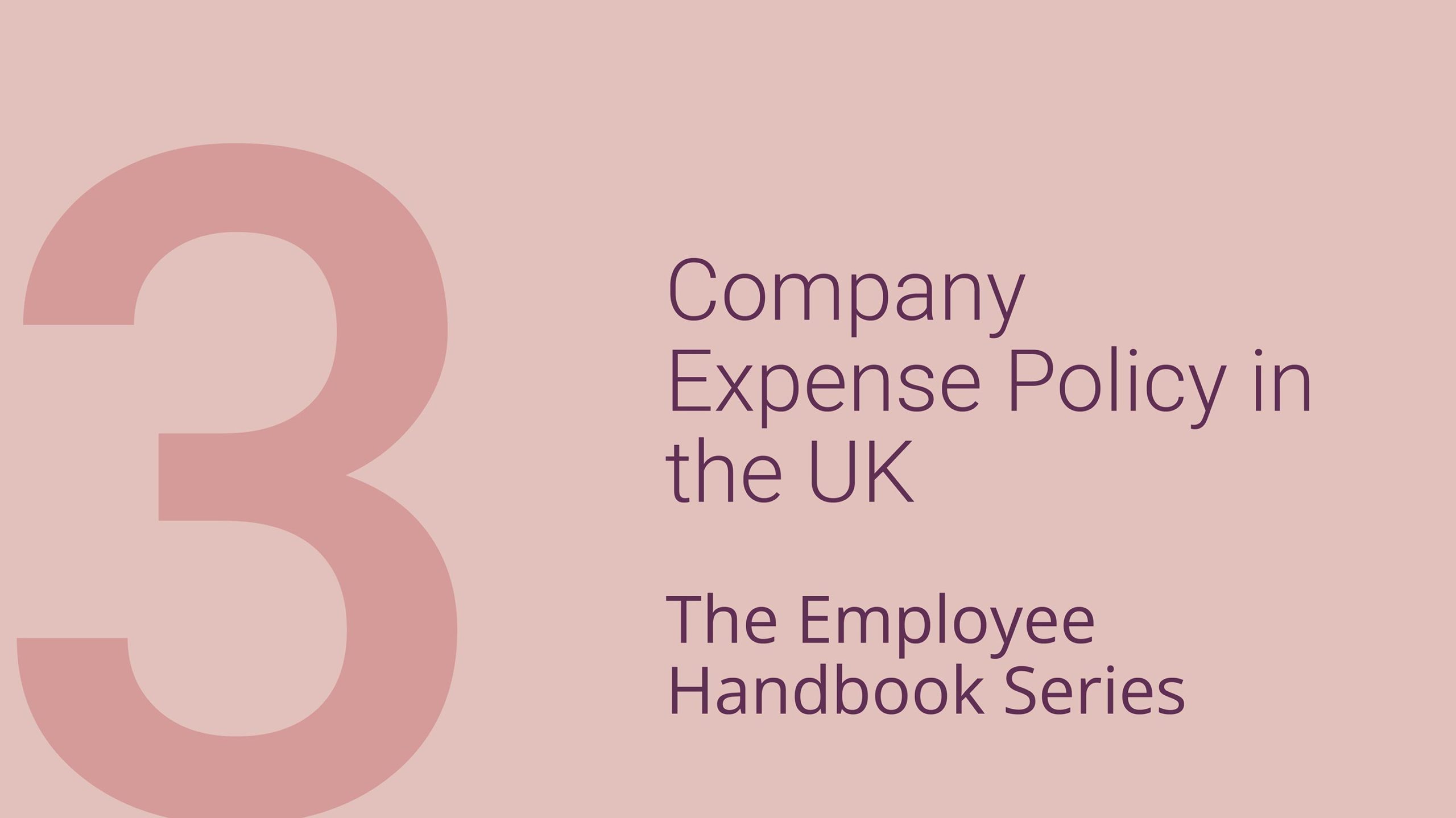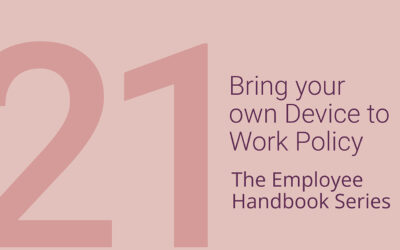This Insight is #3 in our Employment Handbook series, keep an eye out for more.
A company expenses policy is advisable for UK businesses that need to reimburse employees that pay out of pocket for business related goodies, but what is paid for needs to be stipulated clearly, and the process needs to be recorded for employees to easily access.
We’ll give you tips and a template to easily get started.
Reimbursing employees for expenses
Every business in the UK should have an expenses policy.
The policy should clearly set out the procedure you want your employees to follow before reimbursing them for any business expenses.
The policy should be clear about what expenses are reimbursed, as well as what you won’t pay for, and whether there are any limits on what an employee can claim.
Tips for creating the company expenses policy process
When you’re deciding the procedure that needs to be followed, think about who can sign off on the expenses. A good suggestion is getting line managers to do this, or your accounts or HR team.
You should also think about what happens after the expenses have been signed-off. Set out who the company expenses policy should be submitted to, how they should be submitted, who will answer any questions about the expenses being claimed and when and how they will be repaid.
Get started quickly with a draft company expenses policy
It’s a given that you’ll need to make sure that your expenses policy covers the areas you want it to, and that it sets out the procedures you want your employees to follow, but we’ve made it easier for you to get started with a draft expenses policy that we’ve prepared. Get it by clicking here.
You’ll see that we’ve drafted the policy so that line managers have day to day responsibility for expenses, but you can easily have someone else administer the process.
Remember: when you’re tailoring your UK company expenses policy, you should think about:
- Who you want the expenses claims to go to and
- Who should sign them off, plus
- Add a limit on how much your employee can claim, and
- What expenses reimbursement covers.
You want to avoid every employee having breakfast on the business just because they’re meeting with a colleague!
Your responsibility as an Employer
As a matter of law employers must give employees employment contracts which cover the key terms of the employment relationship, but the contract won’t cover all of the policies, procedures and expectations for the relationship between a business and the people within it. A employee handbook can include information for all team members, including employees, workers, apprentices and agency staff. Not only can a employee handbook bring together useful guidance for everyone on the culture, values and expectations the business as but it will often be a resource that can save a dispute from arising or provide the best framework for resolving a dispute. The non-contractual policies and procedures that can be included in a employee handbook will sit alongside contracts of employment to set out how employees are expected to act and how the employer will deal with certain situations.
Putting all the policies and procedures together in one place that is accessible to everyone working in a business is good practice and can provide an invaluable framework for reference on all of the HR issues to cover. If any grievance or dispute arises, having a policy or procedure to refer to and follow can help prevent the situation escalating. If the worst occurs and a claim comes before a tribunal, being able to show the policies and procedures that were followed can make a huge difference to the outcome.





